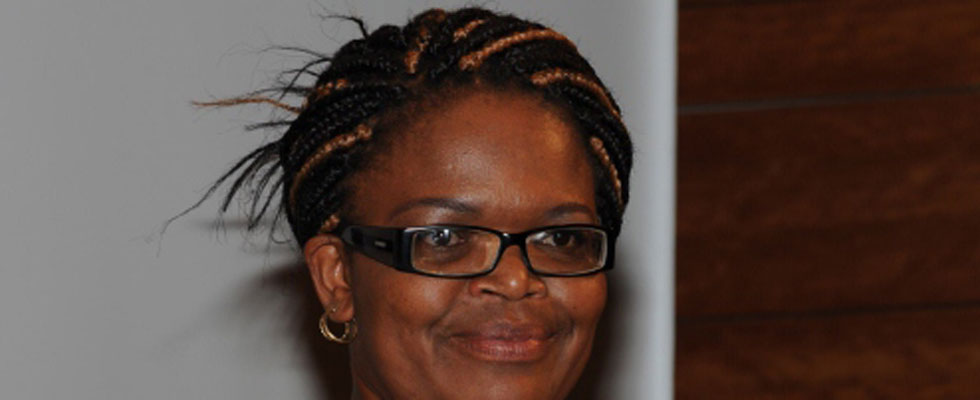
ON May 27, Zimbabwean lawyer and human rights activist Beatrice Mtetwa will enter magistrates’ court in Harare to be tried on charges of obstructing justice.
In March, she was arrested and held for eight days after trying to prevent an illegal police search of offices of the MDC-T.
If convicted, she could go to jail for two years. Mtetwa (55) was in Canada last week to meet with Prime Minister Stephen Harper and to receive an honorary doctorate of law from St Francis Xavier University in Antigonish, Nova Scotia. Below is an excerpts of an interview she held with The Globe and Mail (G&M):
G&M: How do you feel about the prospect of going to trial?
BM: I’m surprised it took them this long to trump up charges against me, but I’m ready for whatever comes my way.
The government recently added more than a dozen new charges to the indictment.
Every day the story changes, so I’m curious to know what I’ll be facing when we get to trial. Of course, it’s a sign of (the charges)being trumped up, because if I did something (wrong) one day, in a couple of minutes, it’s amazing that every day there are new charges. It’s distressing, but not unexpected. The original charges were so laughable that they’re now trying to find something that will appear to have criminality in it.
G&M: Zimbabwe is scheduled to hold national elections this year. What are your expectations on that front?
- Chamisa under fire over US$120K donation
- Mavhunga puts DeMbare into Chibuku quarterfinals
- Pension funds bet on Cabora Bassa oilfields
- Councils defy govt fire tender directive
Keep Reading
BM: The 2008 power-sharing agreement between President Robert Mugabe’s Zanu-PF and two MDC formations was to level the playing field, to build a foundation for free and fair elections. But almost five years later, a lot of issues have yet to be dealt with: repressive legislation has yet to be repealed; the political power still lies with Mugabe; civil society remains marginalised and increasingly clamped down on.
The rights of association, movement, are not recognised. So I don’t believe the climate today is ripe for a free and fair election. We haven’t even agreed on what international observers to invite.
G&M: What degree of Press freedom is there?
BM: The State media is completely beholden to one side — heavily skewed against freedom, as you understand it in the West. The State media is a mouthpiece. And independent journalists are arrested for the slightest infractions. So Press freedom in Zimbabwe remains in intensive care. TV is a monopoly, and though the government did license two new radio stations, it gave ownership to their cronies.
G&M: (President) Robert Mugabe is 89 years old. What does the post-Mugabe future look like?
BM: It will depend on the security sector reforms envisaged in the 2008 agreement. Because the power behind him is from that sector. In theory, the security sector will still have the power, whether he is there or not.
G&M: Will Zimbabwe’s new constitution, approved in March, change the dynamic?
BM: I have a problem with it. On its own, the constitution changes nothing. The current constitution has provisions for basic rights. But it’s the implementation that’s important. If the new constitution is interpreted by the same people who have used the old one to deny human rights, we will be exactly where we were.
G&M: What more could Canada and other Western nations do to promote human rights in Zimbabwe?
BM: There needs to be an insistence by the international community to observe the provisions of the 2008 Global Political Agreement (GPA) to the letter, and that insistence has to be communicated to regional leaders in Africa who guaranteed the agreement.
G&M: Why hasn’t that happened?
BM: There was a belief that there was goodwill on both sides, that everyone was on the same page and that reforms would be implemented. But it’s increasingly clear that isn’t so and that they have no intention of fully implementing its terms.
G&M: Where is Washington in all of this?
BM: In Zimbabwe, there’s a belief that the United States of America is re-engaging, in the assumption that Mugabe will be re-elected.
They don’t want to be left off the boat, even if the provisions of the agreement have not been complied with. Business interest trumps political interest. Reverend Jesse Jackson was there recently, hot on the heels of Andrew Young, who was given an unprecedented two-hour audience with the President. Young has always been against sanctions, backed by the Congressional Black Caucus.
So the feeling is that if sanctions are removed, it won’t be because they have served the purpose of seeing repressive legislation repealed and human rights abuses corrected, but because there are business gains to be made.
Jackson, for example, was there as a representative of business interests eager to invest in the diamond mining sector.











